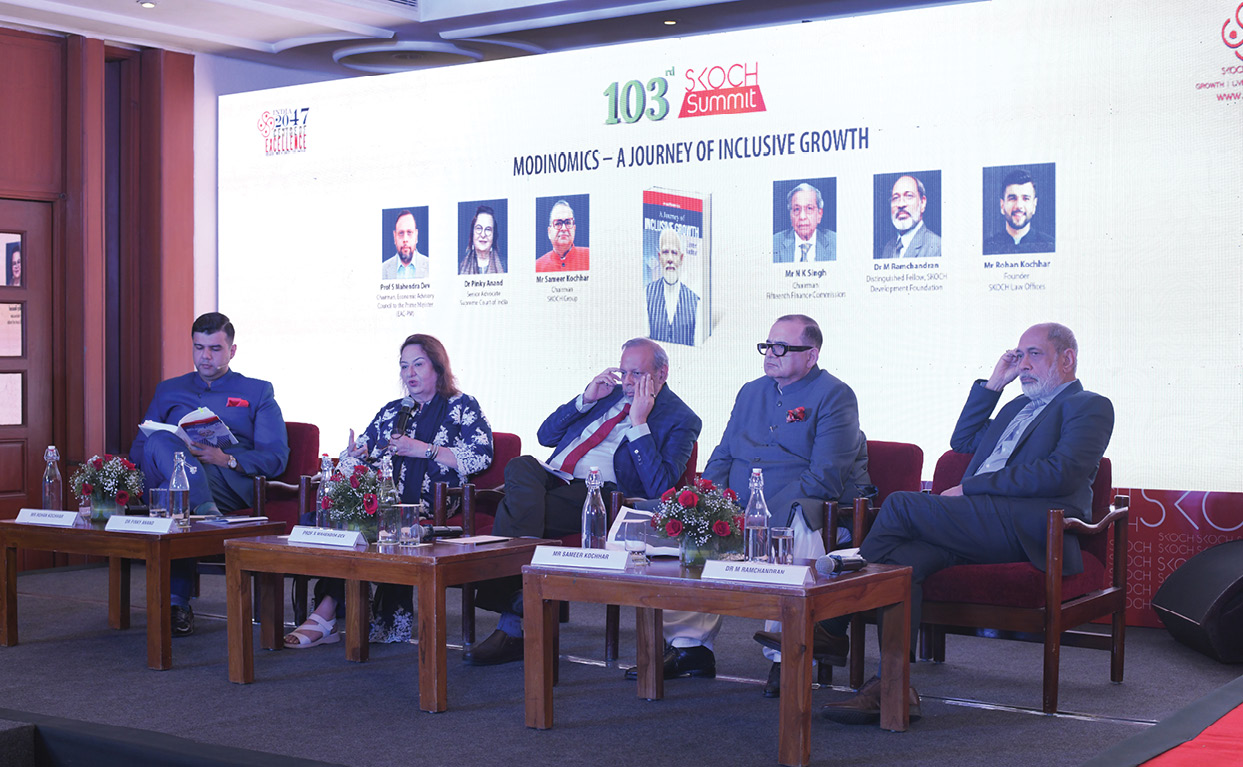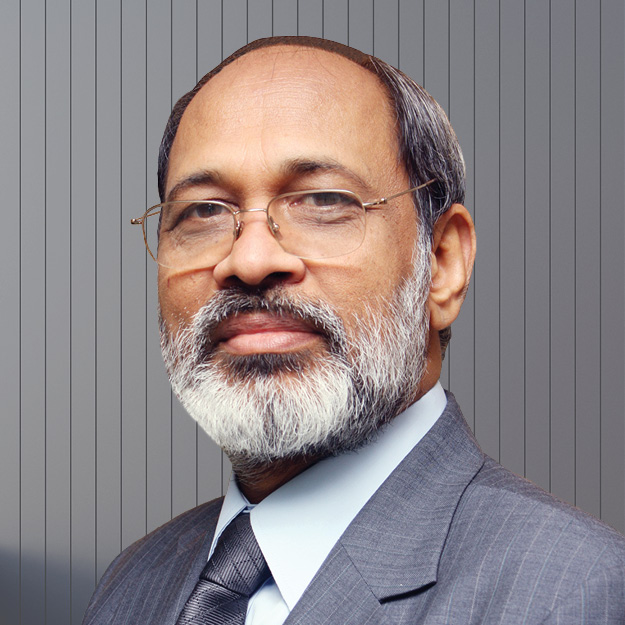Key Points*
- A Rare, Comprehensive Chronicle – Praises Modinomics for documenting both Gujarat and national tenures with first-hand, on-ground verification—not just narration.
- Grounded Leadership – Notes PM Modi’s early, close interaction with citizens—translating lived problems into targeted schemes.
- Gujarat’s Building Blocks – Highlights Jyotigram, water management (check dams, Narmada), Mission Mangalam, and girl-child education as foundational reforms.
- Urban Renewal Excellence – Gujarat consistently led in submitting and implementing urban projects—reflecting strong team leadership and execution focus.
- Vibrant Gujarat with Outcomes – Describes the summit as an action platform that surfaced issues and converted recommendations into programs.
- Policy Depth over Politics – Recalls a Modi speech on urban transport that stayed tightly on technical solutions—evidence of preparation and statesmanship.
- From Plan-Era Limits to Mission Mode – Contrasts earlier thin, five-year allocations with the scale and urgency of Swachh Bharat, launched from the Red Fort.
- Household-Level Transformation – Ujjwala replaced chulhas with LPG—saving women’s time, improving health, and restoring dignity across hills and heartland.
- Inclusion as the North Star – Programs aim for every corner, every community, keeping “the last person in the queue” at the center.
- Cooperative Execution – Urges Centre–State collaboration to carry the inclusive growth agenda forward and strengthen India’s standing globally.
* This content is AI generated. It is suggested to read the full transcript for any furthur clarity.
Transcript
Thank you. Thank you Rohan. With your permission I must start my statement by first complimenting Shri Sameer Kochhar for taking this trouble. He has narrated what has happened since 2001—if I get it right, 2002—up to now: Prime Minister Modi's time as Chief Minister and then as Prime Minister. And as he rightly mentioned, as a reforms historian, he has been observing, watching and it's not just a narration, it's also a confirmation of what he and his team saw, experienced in different parts of Gujarat, subsequently in different parts of the country as well, as to how these programs are making a big difference. So I must compliment you for taking this trouble.
I am not very sure—I am not a great reader, Professor Dev may confirm—I do not know whether there is such a comprehensive publication which covers both the periods and not just narration but the importance of schemes and programs and how they made a difference. And I was going through his book and looking at the various programs which were taken up as Chief Minister and I think the advantage Prime Minister Modi had was he had ground-level interactions with people so he did not need to be educated as to what are the problems of people. So he had that awareness and he got that opportunity to convert those thoughts into action through the various schemes.
And there are quite a number of schemes and programs mentioned. Starting with Jyoti Gram Yojana and things like that which he has listed—Mission Mangalam, education and the girl child. You know, every aspect of society about which we used to keep dreaming, that has been taken up as programs. And I think it's on that foundation that he further built up programs for the country as a whole.
And just two observations, Rohan, with your permission. My interaction with Prime Minister Modi was in the early years. The urban renewal mission was at its peak. And Gujarat would always stand out as far as submitting programs, getting approval and implementation of programs for the urban sector is concerned. That led to jealousies in the country—how is this one state always ahead? But that was the team leadership which one could see. And whenever I used to visit he used to insist on meeting him and he would ask, how are we doing? And generally it is a good performance because you know, there are some states which excel as far as implementation is concerned.
So our problem was the resource allocation was limited. And once a project or program is taken up and completed there was not much scope to give more schemes or programs to a particular state. But his keenness was, what more can I take advantage of as far as projects benefiting the people is concerned? And he used to focus on that. As Pinky ji rightly mentioned, I too used to be part of the Vibrant Gujarat conferences at that time. And it was such an event. It was not just a conclave for the sake of a conclave. It was meaningful. It addressed issues and it came up with the recommendations or programs which need to be taken up. And I think he focused on it as this is one platform which is available where people would get together and point out what more needs to be done. And I think he made it a point to take it forward from there.
I'll also mention one instance. I had an opportunity to go to Gujarat where a Metro car project was being set up, if I remember correct. And Chief Minister Modi was the key speaker at that event. Normally when any program is organized relating to a particular topic there are some general points which political leaders make. But I was so impressed by the speech he delivered. It was Metro—naturally means it is related to urban transport. His speech, right from start till the end, was focused on the issues relating to urban transport and how we need to address them. I mean you all have interacted much, much more. He is one person who prepares for every occasion and he had that full knowledge. It was not a political speech at all. He did not want to refer to other political issues or the like or even other larger issues. But the focus was on urban transport issues. I thought here is a statesman who can, you know, sort of draft what a policy for proper urban transportation should be.
So just those two statements then. Moving on. I think as far as programs are concerned—since you have mentioned my role in the urban development sector also—those were days… Mahendrav Jit of the Plan Era. So Plan Era means resources are there. It has to be fitted into so many things. In urban, we used to get excited about asking for more schemes, more programs so that a larger number of people, larger number of cities and towns can be covered. But there is always a cut. So when it is waste management it will be some small allocation which will be spread over a five-year period.
I was so impressed by Prime Minister Modi's announcement about the Swachh Bharat Mission. I mean it has been discussed so many times whether a Prime Minister should have made an announcement from Red Fort. But it meant so much for people because—I mean I have worked in parts of UP where, pardon my saying, women have to get up early in the morning and get out to meet the requirements of nature. So providing for nature, providing for toilets and making it an all-India mission and make that work—that shows the type of change which could have been brought about even earlier. But that change happened because of his keenness to bring about that type of a change.
Similarly the Chulha Yojana, the cylinders—that made a big difference. I have worked in Uttarakhand. Women have to go out—sorry to say, men would not be involved in these activities—women have to go out, collect those firewood, come back and use that to do all the cooking. Now that time has totally changed because of the availability. So I am not trying to focus on small parts of the entire scheme but how much of a difference these make to people.
And for him I think the people, the people at the ground level, were much, much more important. And the types of schemes and programs which have been brought about show that there is that—one is the inclusiveness which Sameer ji mentioned—and the larger growth as an overall process where everyone gets involved, every part of the country gets involved, every corner gets its advantage.
And I think if we take our work forward in this format, the period which Rohan was referring to, we are bound to achieve—make achievements—and we are bound to stand out differently as far as the International Committee of Nations is concerned, there is no doubt about that. But it is a question of the Centre and states all getting together and working together to take this agenda forward. Because this is meant for people—people amongst us living within the country and particularly focusing on those who have not had opportunities.
Thank you.

